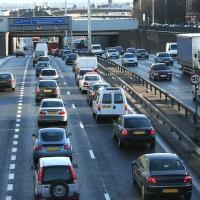
(BRUSSELS) – The EU Council and European Parliament reached a provisional agreement Monday on new rules to reduce road transport emissions for passenger cars, vans, buses, trucks and trailers.
Euro 7 sets limits for non-exhaust emissions, which refer to particles released into the air from brake wear, tyre wear, road surface wear and resuspension of road dust during on-road vehicle usage. These emissions are made up of micrometre-sized particles and can cause negative health effects, including respiratory disease and cancer .
Euro 7 also covers minimum performance requirements for battery durability in electric cars, and imposes stricter vehicle lifetime requirements.
The regulation also provides for the use of advanced technologies and emission-monitoring tools. The new rules are fuel- and technology-neutral, placing the same limits regardless of whether the vehicle uses petrol, diesel, electric drive-trains or alternative fuels.
The benefits of Euro 7 include:
- Lowering air pollutant emissions from road transport
- Setting limits for non-exhaust emissions such as particles from brakes and tyres
- Covering minimum performance requirements for battery durability in electric cars
- Imposing stricter vehicle lifetime requirements
- Providing for the use of advanced technologies and emission-monitoring tools
- Being fuel- and technology-neutral, placing the same limits regardless of whether the vehicle uses petrol, diesel, electric drive-trains or alternative fuels.
The regulation will take effect from January 1, 2024.


